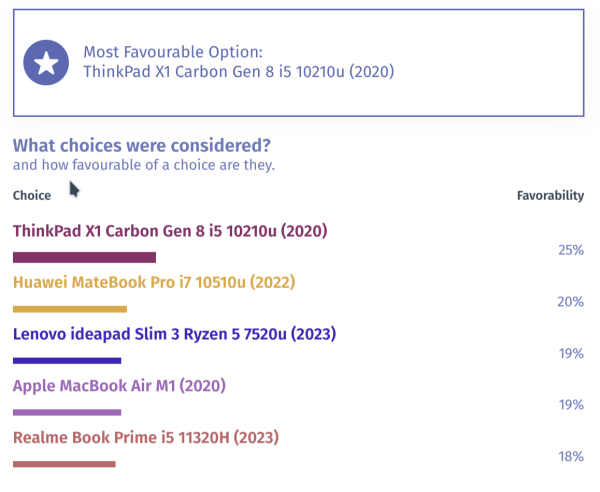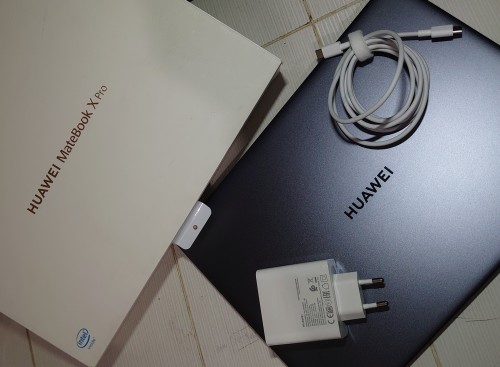Do I always use MCDA?
I often tell a story in my workshops about the versatility of Multi-Criteria Decision Analysis (MCDA). It’s a technique I use not only for complex health policy decisions but also for everyday choices. From selecting my son’s extracurricular activities to choosing the right laptop or schools for my children, MCDA helps me navigate various decisions.
Do I use MCDA for every decision? No, but I do for important ones. Do I always follow the results? Not always.
Let me share an example. Recently, I needed to buy a new laptop. Faced with many options, I used MCDA to help me decide. You can see my process using decision mentor (click here)

However, I had mixed feelings about the outcome. While the MCDA suggested the “rational” choice, I already had a preference for another option. Did I go with the MCDA result? Not this time. I chose my preferred option.
This experience highlights a crucial point: MCDA is a valuable tool, but it’s not the only factor in decision-making. Sometimes, we have criteria that weren’t initially accounted for. It’s important to set criteria at the beginning of the MCDA process. Adding criteria later can risk skewing the process to fit a preferred outcome. Honesty at the start is key.

Does ignoring the MCDA result make the decision “irrational”? Not at all. The MCDA process itself is valuable. It allows for systematic deliberation and a structured thought process. Even the decision to deviate from the result is part of that process.
So, if you have a strong preference, do you need MCDA? Not necessarily, unless you want to make a “rational” choice or be extra sure. The benefit of using MCDA is that you avoid the regret of “I should have thought this through” or “I should have chosen the other option.” You gain clarity, even if you choose a different path. And you take note of additional criteria that would improve your decision process in the future.
You might not always resonate with the result, but it helps you deliberately walk through your thought process and discover the criteria most significant to you.